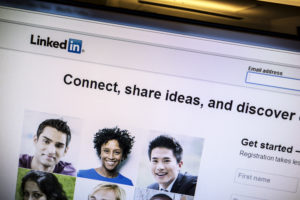In this article, I’m going to cover LinkedIn recommendations and what you need to now about endorsements.

In terms of recommendations, it is essential that you get recommendations from supervisors or your colleagues or even clients of the company you are working for, or have worked for, or as a business owner, get recommendations from clients, or even your staff.
So, why are recommendations important?
Well, by having recommendations, you have social proof of your ability to deliver the goods and will gain trust of potential employers, client and everyone else you want to impress on LinkedIn.
The best way to get a recommendation is to simply ask those connections that know you, if they could write a recommendation.
You can either send them a personal email, or go to the section ‘Recommendations’ from the Profile dropdown menu. If you use the LinkedIn recommendation tool, DON’T just use the default message.
Once you get recommendations back, you can display which ones you want at any given time.
When displaying recommendations – the number one rule it to NOT display those recommendations that are ‘luke warm’ or don’t talk about you in ‘glowing terms’.
This is a really important rule – Remember that vague and noncommittal references and feedback are worse than none at all (for example: did the job adequately ….)
Other things you need to keep in mind about recommendations:
- If you want a recommendation that matches your exact needs, then help your referee with the words and what you want highlighted (I’m not saying write the recommendation, just provide guidance).
- See if you can spread your references across various positions
- Remember the rule – quality over quantity (you don’t need hundreds of recommendations to make an impact) – a few high impact references is all you realistically need.
- Give to get – is very true with recommendations. If you give recommendations, it is more likely that you will receive. Don’t be shy about giving recommendations to people you rate highly!
- If you are reluctant to ask, don’t be. Remember if the table was turned and someone asked you and you thought highly of the person, wouldn’t you be happy to provide a recommendation? They might even be flattered that you asked. Don’t think the worse. If they don’t respond, or say no, you are no worse off than if you did not ask for their recommendation (you have nothing to lose and everything to gain).
What about endorsements
LinkedIn introduced endorsements and they are very easy to give and receive. Because they are so easy to give and receive, they are not highly valued by many recruiters and employers, since endorsements take absolutely no energy on the part of the person making the endorsement and some people endorsing you, realistically cannot even vouch for those skills they are endorsing you for.
You will find strangers endorsing your skills, in the hope of receiving a reciprocal endorsement. Unless you can vouch for a person, don’t endorse their skills (even if you feel obligated).
On the other hand, for people visiting your LinkedIn site, if you have lots of endorsements, it might reflect positively on your image.
I guess what we are saying, is don’t obsess about Endorsements. They don’t really add anything, but at the end of the day, if someone endorses you, accept it with a smile and thank them! You will also find that as your connections grow, so will your endorsements.
So in summary:
- Recommendations are more important than endorsements
- When it comes to recommendations, adhere to the rule of quality over quantity
- As with your resume, it is really important that you don’t display indifferent or poor recommendations as this can impact on your overall Linkedin profile.
- And as a final point, don’t be shy about asking for a recommendation. Most people won’t mind if they know you well and are more than happy to oblige.
 Get exclusive content when you subscribe to Boost Your Career
Get exclusive content when you subscribe to Boost Your Career Carolyn Smith BA, LLB, PLSC, CARW, CEIC, CERW
Carolyn Smith BA, LLB, PLSC, CARW, CEIC, CERW
Leave a Reply